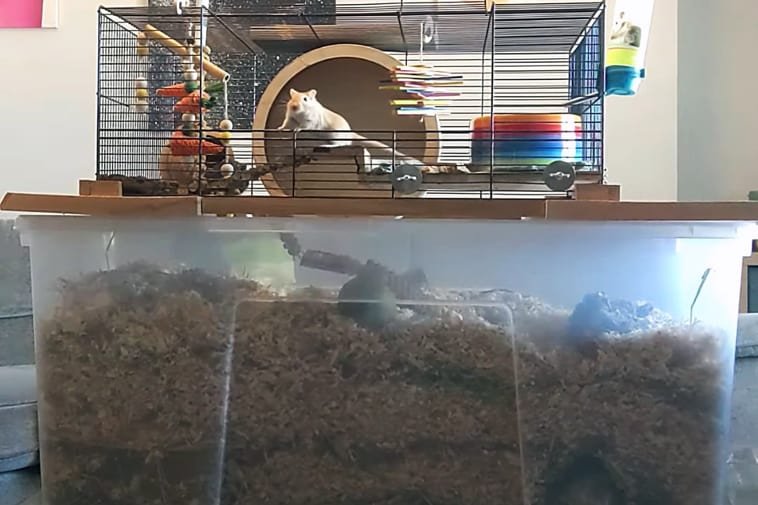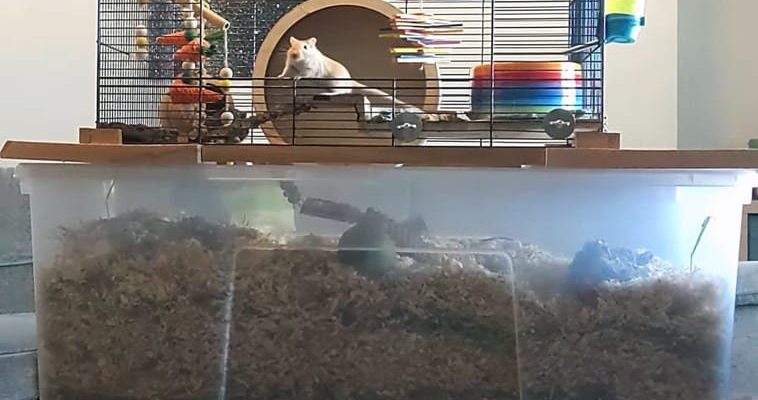
Here’s the thing: caring for gerbils is like setting up a tiny fortress and filling it with love, a good diet, and the right environment. They need space to explore, munch on delicious snacks, and feel safe in their home. So, let’s break it down into easy-to-digest sections so you can give your gerbil the best life possible.
Understanding Gerbil Basics
Gerbils are small rodents typically found in deserts, and they’re native to parts of Asia. One of the most popular types is the Mongolian gerbil. They’re social creatures that thrive on interaction, both with their cage mates and you! If you’re considering bringing a gerbil home, it helps to know a bit about their behavior and needs.
In the wild, gerbils are burrowers. They dig tunnels and create elaborate homes underground—kind of like tiny architects! Because of their natural instincts, they need a spacious cage with plenty of room to explore and play. This means you aren’t just setting up a tiny house for them; you’re creating a mini desert environment that mimics their natural habitat.
When it comes to company, gerbils can be quite social. Pairing them with a buddy can help reduce stress and boredom. Just make sure to introduce them slowly to avoid any territorial disputes.
Cage Setup for Your Gerbil
Let’s talk about the fun part—setting up your gerbil’s new home! Choosing the right cage is crucial. Look for a large, multi-level habitat with solid bottom floors. Avoid cages with wire bottoms, as these can hurt your gerbil’s feet.
Cage Essentials:
- Size: Aim for at least 20 gallons. Bigger is always better!
- Material: Glass or plastic cages are preferable; they allow for better insulation.
- Ventilation: Ensure the cage has good airflow to prevent odors.
Once you have the perfect cage, it’s time to add bedding. Avoid cedar or pine shavings, as these can be harmful. Instead, opt for aspen shavings or paper-based bedding. This not only mimics their natural environment but also helps control odors.
Make sure to include plenty of enrichment items, like tunnels, chew toys, and a sturdy hideout where they can feel secure. Remember, gerbils love to dig and explore, so adding items like sand baths and climbing structures can keep your little friend entertained and active.
The Perfect Diet for Gerbils
Now, let’s dive into what you should be feeding your nutty little friend! A proper diet is key to keeping your gerbil healthy. They’re omnivores, which means they eat both plants and animals, but their primary diet should be based on high-quality pelleted food.
Choose a gerbil mix that contains:
- Seeds: Look for sunflower seeds, pumpkin seeds, and millet.
- Grains: Oats and barley are great sources of energy.
- Vegetables: Offer small amounts of carrot, broccoli, or leafy greens occasionally.
Avoid sugary fruits or too many treats, as these can lead to health problems. Also, make sure fresh water is always available—gerbils need to stay hydrated just like we do!
When feeding, keep an eye on portion sizes. Too much food can lead to obesity, which isn’t great for their active lifestyle. As a rule of thumb, offer about one to two tablespoons of food per gerbil every day.
Handling Your Gerbil Safely
Handling your gerbil might seem a bit daunting at first, but it’s an essential part of bonding with your new pet. When you first bring your gerbil home, give it some time to settle into its environment before you start handling it. This helps them feel secure in their new digs.
When you’re ready to pick up your gerbil, approach slowly. Here’s how to do it:
1. First, get down to their level. It makes you less intimidating.
2. Cup your hands around your gerbil gently, making sure not to squeeze.
3. Support their body from underneath to give them a sense of security.
Honestly, some gerbils may be a bit squirmy at first. If they try to jump or run away, let them explore your hands rather than gripping tightly. You’ll both feel more comfortable with practice!
Make time each day for interaction. It not only helps them get used to you but will also keep them entertained. Try offering treats or toys during handling time to build a positive association.
Common Health Concerns
Just like any pet, gerbils can face health issues. It’s important to keep an eye on their behavior and condition. Some common concerns include:
- Dental problems: Gerbils’ teeth continuously grow, so they need things to chew on. If their teeth get too long, it can lead to many problems.
- Skin issues: Watch for any signs of scratching or hair loss, which could indicate mites or allergies.
- Respiratory issues: If you notice sneezing or difficulty breathing, it might be time to consult a vet.
Regular check-ups with an exotic pet veterinarian can help catch any potential issues early. Understanding normal behavior can also help you recognize when something’s off.
Creating a Rich Environment
Gerbils are active little creatures that thrive in enriched environments. Giving them things to explore and play with is vital for their happiness. Think of it this way: a bored gerbil is an unhappy gerbil.
Consider adding:
- Exercise wheels: Make sure it’s solid-bottom to prevent injury.
- Caves and tunnels: They’ll love to hide and scamper through these.
- Sand baths: This keeps their fur clean and is a great source of entertainment.
Changing things up regularly can help keep their environment exciting. You might want to rearrange their toys or add new ones every few weeks.
Building a Bond with Your Gerbil
As you get more comfortable handling your gerbil, you’ll also find ways to build a lasting bond. Spend quality time together, talk softly while you feed them, and offer treats to establish trust.
It’s important to remember that every gerbil has its own personality. Some might be more adventurous, while others are on the shy side. Being patient and gentle goes a long way—think of it like a friendship where trust takes time to develop.
Regular interaction will help both of you learn to communicate. As your gerbil becomes more comfortable with you, they may even approach you on their own. Now, wouldn’t that be an adorable surprise?
In conclusion, caring for a gerbil is about creating a safe, loving, and stimulating environment for your new little friend. From choosing the right cage and diet to understanding their behavior and health needs, you’re setting the stage for a fulfilling and enjoyable experience together. With the right approach, you’ll be rewarded with a playful companion who’s ready to share its life with you. Happy gerbil parenting!

